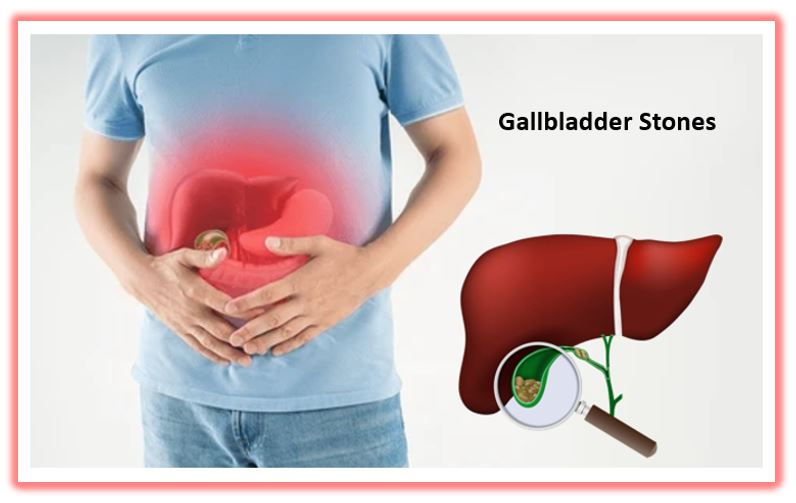Integrative Medicine for Gallbladder Stones - Effective Approach to Prevent and Manage Gallstones
- Dharmesh Shah
- Oct 1, 2024
- 3 min read

Gallbladder stones, also known as gallstones, are hardened deposits in the gallbladder, a small organ located beneath the liver. These stones can cause significant discomfort and may lead to complications like cholecystitis or pancreatitis. While conventional treatments often focus on surgical interventions, integrative medicine offers a holistic approach to managing and preventing gallbladder stones. This blog delves into the role of detox therapies and other evidence-based strategies in addressing cellular imbalances and promoting overall health.
Understanding Gallbladder Stones
Gallstones can be classified into two main types: cholesterol stones, typically yellow-green, and pigment stones, which are smaller and darker. Various factors, including diet, obesity, hormonal changes, and genetics influence the formation of gallstones. Symptoms often include abdominal pain, nausea, and bloating.
The Role of Integrative Medicine for Gallbladder Stones
Integrative medicine combines conventional medical treatments with complementary therapies, emphasizing the whole person rather than just the disease. This approach is particularly beneficial for conditions like gallbladder stones, as it addresses underlying imbalances and promotes overall well-being.
Detox Therapies: A Cornerstone of Integrative Medicine
Detox therapies are essential in integrative medicine, particularly for addressing cellular imbalances that can contribute to the formation of gallstones. These therapies focus on enhancing the body’s natural detoxification processes, thereby correcting internal environmental factors.
Dietary Modifications
A balanced diet rich in fiber, healthy fats, and antioxidants can help prevent gallstones. Foods like fruits, vegetables, whole grains, and lean proteins support liver and gallbladder function. Incorporating healthy fats, such as omega-3 fatty acids found in fish and flaxseeds, can enhance bile production and improve fat digestion.
Evidence: A study published in the American Journal of Gastroenterology highlighted that a diet high in fiber and healthy fats is associated with a lower risk of gallstone formation.
Hydration and Fluid Intake
Adequate hydration is crucial for maintaining optimal bile composition and preventing gallstone formation. Drinking plenty of water helps dilute bile acids and promotes the excretion of waste products.
Evidence: Research indicates that increased fluid intake is linked to a reduced risk of gallstones, particularly in women.
Herbal Remedies
Certain herbs, such as milk thistle, dandelion, and artichoke, are known for their liver-supportive properties. These herbs can promote bile flow, aiding in the digestion and elimination of fats.
Evidence: A clinical trial in Phyto therapy Research demonstrated that artichoke leaf extract significantly improved liver function and bile production in participants with gallbladder dysfunction.
Detoxification Programs
Structured detox programs can support the liver and gallbladder by promoting the elimination of toxins and waste. These programs often include dietary changes, supplements, and cleansing practices, such as fasting or juicing.
Evidence: A review in the Journal of Nutrition concluded that detoxification protocols effectively enhance liver function and reduce systemic inflammation.
Stress Management and Mind-Body Techniques
Chronic stress can negatively impact digestive health and contribute to gallstone formation. Mind-body techniques such as yoga, meditation, and deep-breathing exercises can help manage stress and promote relaxation.
Evidence: A meta-analysis in Health Psychology Review found that mind-body interventions significantly reduce stress and improve health outcomes.
Physical Activity
Regular physical activity is essential for maintaining a healthy weight and promoting digestive health. Exercise stimulates bile production and helps prevent gallstone formation by reducing cholesterol levels in the bile.
Evidence: A study published in Gastroenterology found that individuals with higher physical activity levels had a significantly lower risk of developing gallstones.
Nutritional Supplements
Certain supplements, such as omega-3 fatty acids, probiotics, and vitamin C, can support gallbladder health. Omega-3s help maintain healthy bile composition, while probiotics promote a balanced gut microbiome, which is crucial for digestive health.
Homeopathy and Acupuncture
Homeopathic remedies and acupuncture can complement traditional treatments by addressing symptoms and promoting overall well-being. These modalities may help relieve pain and improve gallbladder function.
Evidence: A systematic review in BMC Complementary and Alternative Medicine suggested that acupuncture can be effective in managing pain and improving the quality of life in patients with gallbladder issues.
Integrative medicine offers a holistic approach to managing gallbladder stones by addressing the underlying causes and promoting overall health. Detox therapies play a vital role in correcting cellular imbalances and enhancing the body’s natural detoxification processes. By incorporating dietary modifications, herbal remedies, stress management techniques, and regular physical activity, individuals can take proactive steps toward preventing gallbladder stones and improving their overall well-being.
As with any medical condition, it is essential to consult with a healthcare professional before implementing any new treatment or therapy. Integrative medicine should be viewed as a complementary approach alongside conventional treatments, ensuring a comprehensive strategy for managing gallbladder stones and enhancing health.

Comments